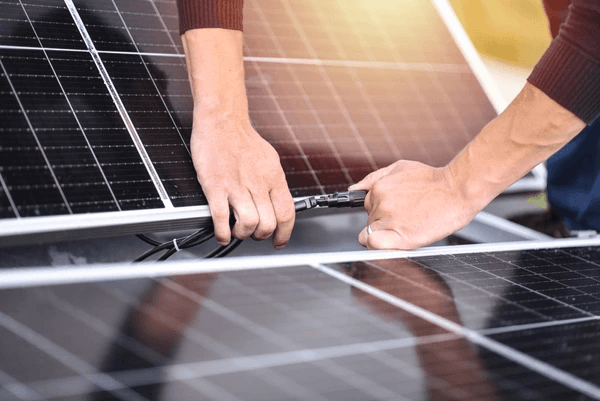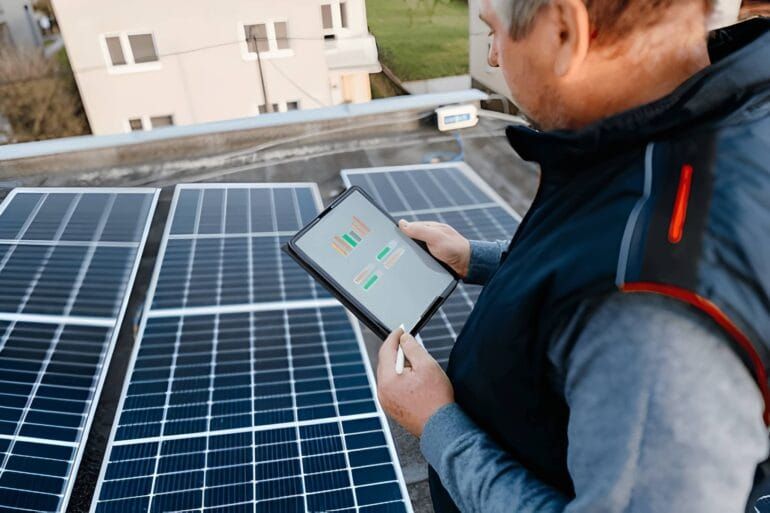In the sun-drenched city of Perth, the adoption of solar power has become more than just a trend; it’s a sustainable solution for homeowners looking to reduce their environmental footprint and save on energy costs. With abundant sunlight year-round, Perth offers the perfect environment for harnessing solar energy and transforming it into clean, renewable electricity. The decision to go solar, however, is not one to be taken lightly. One common question that arises during this process is How many KW solar do I need in Perth? Homeowners must navigate through various considerations, from understanding their energy needs to selecting the right solar system size and ensuring proper installation and maintenance.
Assessing Solar Potential in Perth
Perth, located in Western Australia, boasts abundant sunshine throughout the year, making it an ideal location for harnessing solar energy. Understanding the solar potential in Perth involves evaluating various factors that contribute to solar irradiance levels and energy production capabilities.
Overview of solar irradiance levels in Perth
Solar irradiance refers to the amount of solar energy received per unit area at a given location. Perth enjoys high levels of solar irradiance due to its favorable geographic location and climate conditions. The city experiences long hours of sunlight, particularly during the summer months, when days are longer and skies are clearer. The combination of low cloud cover and minimal atmospheric interference enhances solar irradiance levels, maximizing the energy output of solar panels installed in the region.
Determining solar energy production potential based on location
When assessing solar potential in Perth, it’s essential to consider the specific location and orientation of solar panels relative to the sun’s path. South-facing rooftops typically receive the most sunlight throughout the day, followed by east and west-facing orientations. Factors such as shading from nearby buildings or vegetation can impact the efficiency of solar panels and should be taken into account during the assessment process.
To determine the solar energy production potential of a particular location in Perth, solar professionals use advanced tools and software that take into account variables such as roof tilt, azimuth angle, and shading analysis. These tools provide accurate estimates of the expected energy output based on historical weather data and solar irradiance levels specific to the area.
Calculating For KW solar do I need in Perth
Determining the ideal kW solar setup for your home involves several factors:
Energy Consumption
Understanding energy consumption patterns is the foundational step in determining the appropriate size and type of solar energy system for your home or business. By analyzing past utility bills, you can gain insights into your average monthly and annual energy usage. Look for trends in energy consumption, including peak usage periods and seasonal variations. This information helps you estimate the amount of electricity your solar system needs to generate to offset your electricity bills effectively. Additionally, consider factors such as the types of appliances and electronics you use, heating and cooling systems, and any other significant energy-consuming devices.
 Sunlight Availability
Sunlight Availability
The amount of sunlight your property receives directly impacts the performance and efficiency of your solar energy system. Before installing solar panels, assess your property’s sunlight exposure throughout the day and across different seasons. Factors such as shading from nearby trees, buildings, or other obstructions can affect sunlight availability. South-facing roofs generally receive the most sunlight in the Northern Hemisphere, but east and west-facing roofs can also be viable options depending on your location and roof orientation. Understanding sunlight availability helps you determine the optimal placement and angle for your solar panels to maximize energy production.
 System Efficiency
System Efficiency
System efficiency refers to how effectively your solar panels convert sunlight into electricity. Higher efficiency panels produce more electricity per square meter, maximizing energy generation potential. When selecting solar panels and inverters, consider their efficiency ratings and performance under various conditions. High-quality panels and inverters may have higher upfront costs but can yield greater long-term energy savings. Additionally, consider factors such as degradation rates, warranties, and reliability when evaluating system efficiency. By choosing efficient components, you can optimize the performance and longevity of your solar energy system, ensuring maximum energy production over its lifespan.
 Roof Space
Roof Space
Assessing your available roof space is crucial when planning a solar installation. Solar panels require sufficient unshaded area to generate optimal electricity. Measure the dimensions of your roof and identify any potential obstacles such as chimneys, vents, or skylights that may limit panel placement. Consider the orientation and tilt of your roof as well, as south-facing roofs typically receive the most sunlight in the Northern Hemisphere. Ensure there is ample space to accommodate the number of solar panels needed to meet your energy requirements while adhering to local building codes and regulations.
 Financial Considerations
Financial Considerations
Before investing in a solar energy system, it’s essential to evaluate the financial aspects of solar power. Calculate the upfront costs of purchasing and installing solar panels, including equipment, labor, permits, and any additional expenses. Explore available financing options, such as loans, leases, or power purchase agreements (PPAs), to determine the most cost-effective solution for your budget. Assess potential incentives, rebates, and tax credits offered by federal, state, or local governments to offset installation costs and enhance the return on investment. Consider the long-term savings and benefits of solar energy, including reduced electricity bills, increased property value, and environmental sustainability. Compare the lifetime costs of solar power against conventional electricity rates to make informed financial decisions that align with your energy goals and financial objectives.
 Installation and Maintenance
Installation and Maintenance
Professional Installation
When it comes to installing your solar system in Perth, opting for professional installation is crucial. Accredited solar installers possess the expertise and experience necessary to ensure a safe and efficient installation process. By entrusting the installation to professionals, you can minimize the risk of errors and maximize the performance of your solar system.
Ensuring Safety and Compliance
Professional installers adhere to safety standards and local regulations to ensure compliance throughout the installation process. They assess your property’s structural integrity and electrical infrastructure to determine the most suitable placement for your solar panels. They handle all necessary permits and paperwork, streamlining the installation process and providing you with peace of mind.
Maximizing Efficiency
During installation, professionals optimize the positioning and orientation of your solar panels to maximize sunlight exposure and energy generation. They also ensure proper wiring and connection of components to optimize system efficiency and performance. By fine-tuning these details during installation, you can maximize the energy output of your solar system and enhance its long-term reliability.
Regular Maintenance Checks
Once your solar system is installed, regular maintenance is essential to ensure its continued performance and longevity. Schedule periodic maintenance checks to inspect the condition of your solar panels, inverters, and other components. Cleaning the panels and removing any debris or obstructions helps maintain optimal energy production.
Monitoring System Performance
Monitoring your solar system’s performance allows you to identify any issues promptly and take corrective action. Keep track of energy production data and monitor for any deviations from expected performance levels. In case of any anomalies, contact your solar installer or technician for troubleshooting and repairs.
Professional Servicing and Repairs
In the event of system malfunctions or component failures, rely on professional servicing and repairs to restore your solar system’s functionality. Attempting DIY repairs can void warranties and pose safety risks. Instead, enlist the expertise of qualified technicians to diagnose and resolve issues efficiently.
Consulting Solar Experts
For accurate system sizing and optimal solar energy solutions, consulting with solar experts is paramount.
Importance of seeking professional advice for accurate Kw Solar system sizing
Seeking professional advice ensures that your solar energy system is appropriately sized to meet your specific energy needs and environmental conditions. Solar experts consider various factors, including your energy consumption patterns, roof orientation, shading, and local weather conditions, to design a system that maximizes energy production and efficiency. Professional assessments help avoid under-sizing, which may lead to insufficient energy generation, or oversizing, resulting in unnecessary costs. By partnering with solar professionals, you gain access to their expertise and industry knowledge, ensuring a customized solution tailored to your requirements.
Benefits of professional assessments and recommendations
Solar experts provide comprehensive assessments of your property’s solar potential, taking into account factors that impact system performance and longevity. Their expertise enables them to identify potential challenges and opportunities, allowing for informed decision-making of KW Solar you needs and also throughout the solar installation process. Professional recommendations help optimize your return on investment by selecting the most suitable solar equipment and configuration for your property. By leveraging their experience and insights, you can navigate regulatory requirements, incentives, and financing options with confidence, streamlining the transition to solar energy. Moreover, solar experts stay abreast of technological advancements and industry trends, ensuring that your system incorporates the latest innovations and best practices for maximum reliability and performance.
Conclusion
Navigating the KW Solar in Perth requires a comprehensive understanding of various factors that influence system performance and suitability. From assessing solar potential and energy consumption to consulting with solar experts, each step plays a crucial role in the successful implementation of solar solutions. Determining How many KW solar do I need in Perth requires careful consideration of your energy consumption, sunlight availability, system efficiency, roof space, and financial implications. By making informed decisions and leveraging available resources, you can harness the abundant solar energy in Perth to power your home sustainably while enjoying long-term savings.
Read more: Discover the Best Solutions for Solar Power Perth
FAQs
What factors influence the ideal kW capacity for a solar system in Perth?
Factors such as energy consumption, sunlight availability, system efficiency, roof space, and financial considerations play crucial roles in determining the ideal kW capacity.
Is it possible to install a solar system with excess capacity for future expansion?
Yes, many solar systems can accommodate additional panels in the future to expand capacity as needed, provided there is sufficient roof space and infrastructure support.
What are the typical maintenance requirements for a solar system in Perth?
Regular maintenance involves cleaning panels, inspecting for damage or debris, checking connections, and monitoring system performance. It’s advisable to schedule professional maintenance at least once a year.
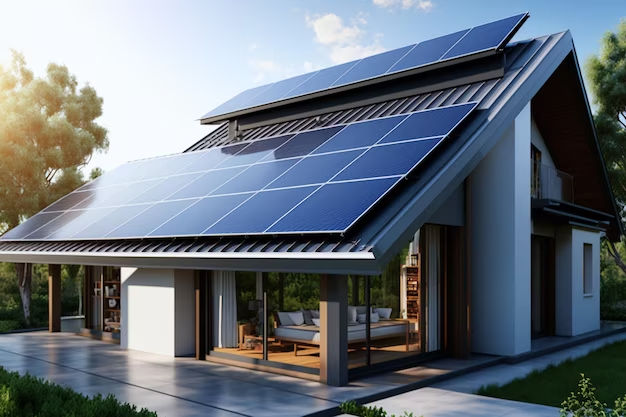
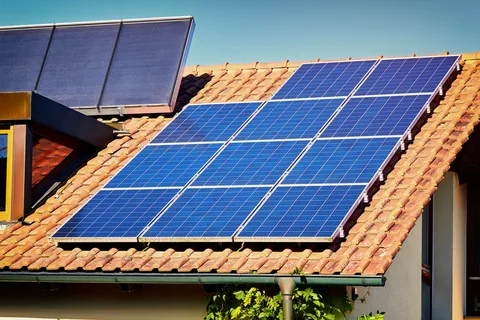 Sunlight Availability
Sunlight Availability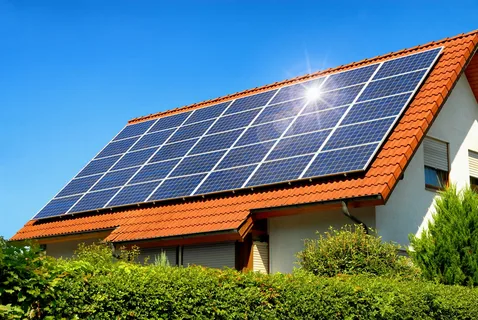 System Efficiency
System Efficiency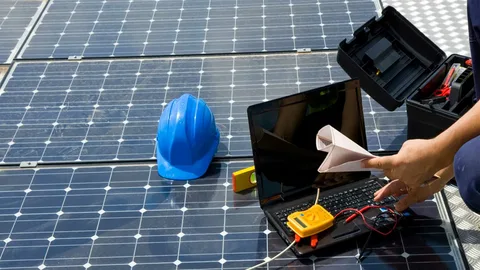 Roof Space
Roof Space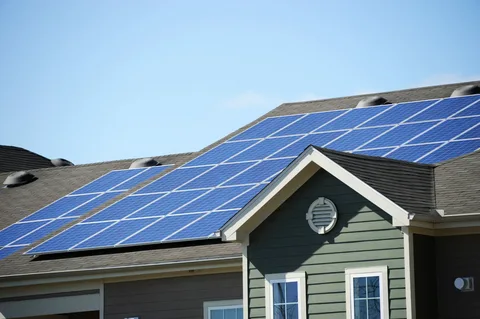 Financial Considerations
Financial Considerations Installation and Maintenance
Installation and Maintenance
